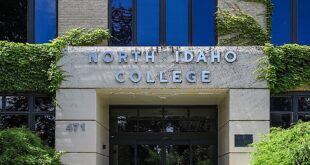Georgia’s Gifted Program Faces Challenges in Class Sizes, Teacher Training, and Student Selection
Georgia’s program for gifted students has problems with too-large class sizes, teacher training, and student selection, a new report from the state auditor’s office finds.
Georgia’s Gifted Program Overview
In the 2020-21 school year, about 199,000 Georgia students were designated as gifted, representing about 12% of the 1.7 million statewide student body. The state Department of Education said the students need “special instruction and/or special ancillary services to achieve at levels commensurate” with their abilities.
To help make sure they get that instruction, the state spends between 30% and 68% more on each gifted student based on Georgia’s Quality Basic Education formula for per-student spending. That makes the gifted program the largest nongeneral education program funded, according to the formula.
Class Sizes and Instruction Methods
Gifted funding is based on a ratio of 12 students per teacher, but the auditors found more than 77% of gifted classes across the state exceeded 12 students, and gifted classes averaged 23 students per teacher. That means the state is paying a higher rate for gifted students but may not be reaping the intended benefits of more individual instruction for gifted students, the auditors found.
Gifted coordinators told auditors that a lack of resources can lead to larger classes.
Discrepancies in Larger School Systems
The auditors found the misuse was exacerbated in larger school systems. Georgia’s 36 school systems with more than 10,000 students had an average of 23 gifted students per teacher, while 11 systems with less than 1,000 students had an average of 12 students per teacher.
The auditors recommended the General Assembly should consider tweaking funding for gifted students in discussions about altering the funding formula, and the state Department of Education should periodically review gifted class sizes.
Differentiated Instruction Methods
The Department of Education allows eight models for gifted instruction, including resource classes, cluster grouping, and collaborative teaching. However, the auditors found that these methods may prevent gifted students from receiving individualized attention.
Statewide, 40% of gifted elementary school students were enrolled in a class with cluster grouping, and 12% had at least one collaborative teaching class. However, the National Association for Gifted Children believes that general education services should not replace differentiated instruction provided by models like the resource class.
Challenges in Teacher Training
The education department requires gifted classes to be led by teachers with gifted in-field endorsements. However, auditors found that 7,500 of 76,000 gifted classes in the 2020-21 school year were taught by teachers without an endorsement.
Rural districts were more likely to have higher percentages of teachers without the endorsement. This oversight may have led to overpayments of up to $9.7 million for classes taught by uncertified teachers.
Issues with Student Selection and Instruction
The auditors found fault with schools’ processes for selecting students. The Department of Education does not require universal screening for gifted status, causing students, especially those in disadvantaged groups, to potentially miss out.
Eligibility declines as poverty levels increase, and Asian and white students are overrepresented in gifted programs compared to members of other races. Most school systems do provide universal screening, but it is not required as it is in other states.
Conclusion
The audit report highlights the challenges faced by Georgia’s gifted program in terms of class sizes, teacher training, and student selection. It recommends changes in funding, periodic reviews of class sizes, and universal screening for gifted status. The state Department of Education acknowledges the findings and agrees to implement new policies, but also highlights the local control aspect of education in Georgia. Addressing these issues will be crucial in providing appropriate education to Georgia’s gifted students.
 Mind Uncharted Explore. Discover. Learn.
Mind Uncharted Explore. Discover. Learn.


